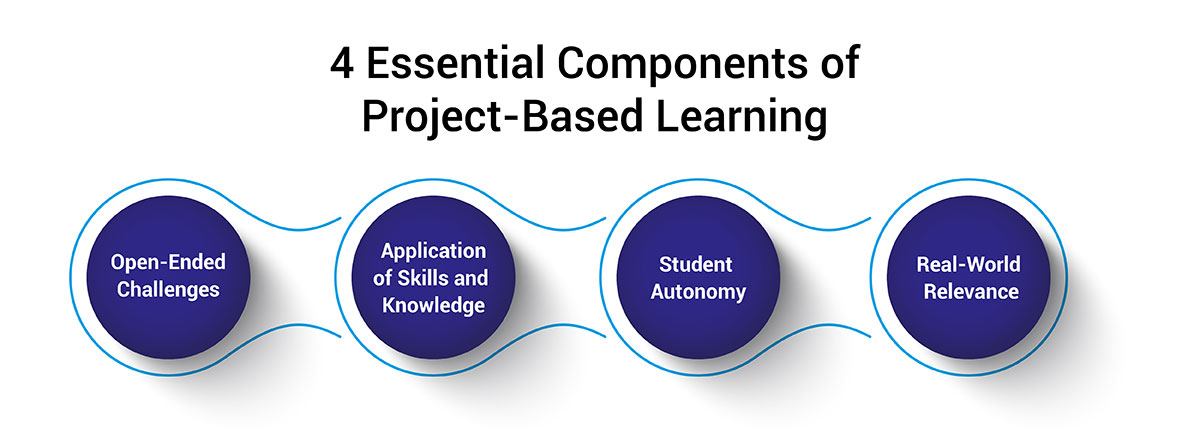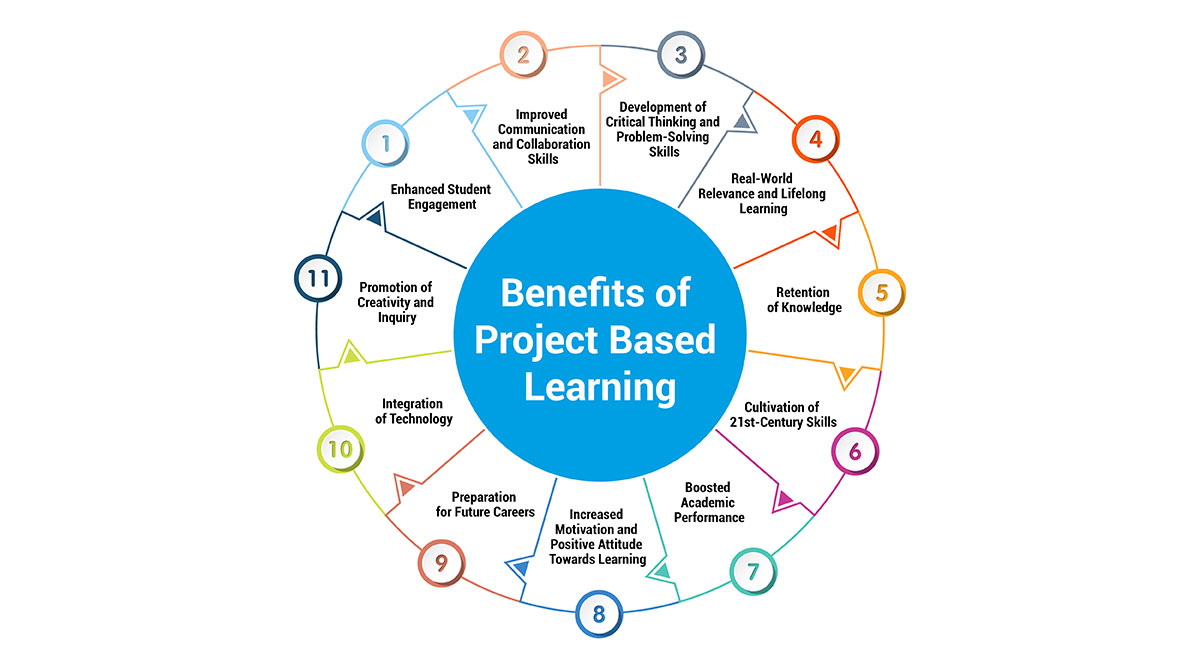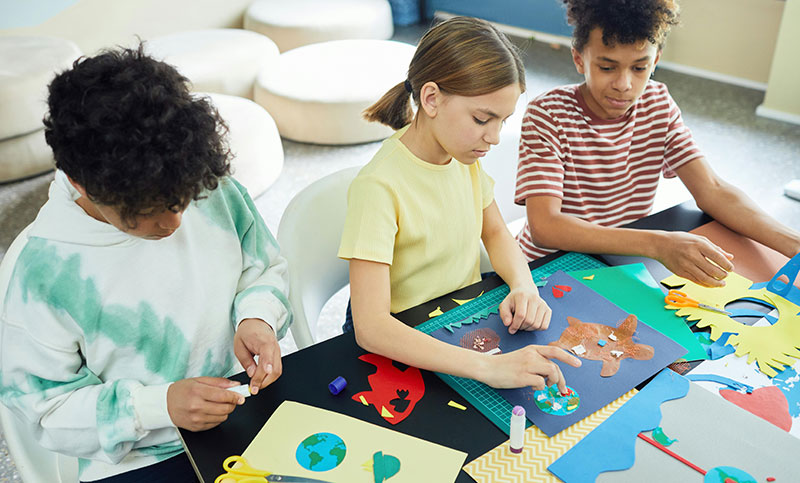Project-Based Learning: Transformative Benefits for K-12
June 28, 2024As conventional teaching techniques evolve, educators are seeking innovative methods to engage students and improve learning outcomes. One such method gaining significant attention is project-based learning (PBL). PBL is an instructional approach that emphasizes projects and challenges, encouraging students to employ critical thinking skills to solve problems and apply their knowledge to real-world situations. This method aims to equip students with the skills they need to succeed in their future careers. For teachers and parents curious about PBL, understanding its principles and benefits is essential.
Understanding Project Based Learning
Project-Based Learning (PBL) is a dynamic, student-centered instructional approach that focuses on critical analysis, solution-oriented thinking, and applying knowledge to practical, real-world contexts. Unlike traditional teaching methods that often rely on rote memorization and teacher-led instruction, PBL engages students through complex, open-ended questions or challenges that require deep concentration and nuanced problem-solving skills. The goal is to help students acquire the skills necessary for success in their future careers by fostering a more engaging and meaningful learning experience.
At its core, PBL involves students working on projects that are directly related to the curriculum and often interdisciplinary in nature. These projects can last for weeks or even an entire semester, allowing students to delve deeply into the subject matter. The problems posed in PBL are typically complex and real-world, requiring students to apply the skills and knowledge they have developed in their classes. This approach encourages students to take their own paths in developing solutions and delivering final products, such as live presentations, partnerships with local businesses, or product prototypes.
The PBL methodology is characterized by several key components:

- Open-Ended Challenges: Students engage with questions or problems that do not have straightforward answers, promoting analytical thinking and creativity.
- Application of Skills and Knowledge: Projects require students to use what they have learned in practical, often interdisciplinary ways.
- Student Autonomy: Learners are encouraged to take ownership of their projects, making decisions about how to approach and solve problems.
- Real-World Relevance: Projects are designed to be meaningful and relevant to the students' lives and future careers.
Researches indicates that PBL has a significant positive impact on student engagement, interest in lessons, creative thinking, and computational thinking. It allows teachers to assess students continuously, providing feedback and guidance throughout the project. This ongoing assessment helps students improve their skills at each stage of the project, from initial problem identification to final solution presentation.
Benefits of Project Based Learning
Project-Based Learning (PBL) has emerged as a transformative educational approach, significantly enhancing student engagement, performance, and career readiness. This method moves beyond traditional teaching techniques, emphasizing real-world applications, Intellectual rigor, and collaborative problem-solving.

-
Enhanced Student Engagement:
PBL motivates students by making learning more relevant to their lives. By tackling real-world problems, students see the direct application of their knowledge, which increases their interest and involvement in their studies. This hands-on approach fosters a sense of ownership and responsibility, driving students to be more active participants in their learning journey. When students find the material personally meaningful, they are more likely to invest time and effort, leading to a deeper understanding and retention of the content. -
Improved Communication and Collaboration Skills:
A core component of PBL is collaboration. Students work in groups to investigate and solve complex problems, which helps them develop essential social and communication skills. They learn to articulate their ideas clearly, listen to others, and incorporate feedback, preparing them for teamwork in their future careers. Presenting their projects to peers or community members further hones their public speaking and presentation abilities. -
Development of Critical Thinking and Problem-Solving Skills:
PBL challenges students to think critically and creatively. They are encouraged to explore multiple solutions and consider various perspectives, which enhances their ability to analyze, evaluate, and synthesize information. This approach helps students build robust problem-solving skills that are crucial in both academic and real-world settings. By engaging in projects that require thoughtful analysis and practical application, students become adept at handling complex, open-ended questions. -
Real-World Relevance and Lifelong Learning:
PBL connects classroom learning to real-world contexts, making education more meaningful. Students engage with projects that address genuine issues, cultivating a practical understanding of how their academic knowledge applies outside of school. This relevance not only boosts engagement but also encourages lifelong learning. By solving real problems, students see the value in what they learn, which motivates them to continue seeking knowledge throughout their lives. -
Retention of Knowledge:
Research indicates that students who participate in PBL have better retention of knowledge. This is because they are actively involved in the learning process, applying and synthesizing information rather than passively receiving it. Projects require students to revisit and utilize concepts over an extended period, reinforcing their understanding and memory. This approach contrasts with traditional methods where information is often forgotten soon after tests or exams. -
Cultivation of 21st-Century Skills:
PBL promotes the development of crucial 21st-century skills such as critical thinking, communication, collaboration, and creativity. These skills are increasingly important in today’s job market. By working on projects, students practice these abilities in meaningful contexts, preparing them for future professional challenges. PBL encourages students to be innovative and adaptable, qualities that are highly valued in any career. -
Boosted Academic Performance:
Studies have shown that PBL can lead to improved academic performance. For example, researches from prominent institutes for education found that students engaged in PBL performed better on standardized tests and in subjects like science and math compared to those in traditional learning environments. The active involvement and practical application of knowledge in PBL contribute to higher academic achievement. -
Increased Motivation and Positive Attitude Towards Learning:
PBL instills a sense of purpose in students, which can significantly boost their motivation. When students work on projects that are personally relevant and significant, they are more likely to stay committed and enthusiastic about their learning. This increased motivation translates into a more positive attitude towards school and education in general, developing a productive and enjoyable learning environment. -
Preparation for Future Careers:
PBL helps students prepare for their future careers by developing skills that are essential in the workplace. It emphasizes evaluative thinking, problem-solving, collaboration, and effective communication. Additionally, PBL often involves projects that mimic real-world challenges, providing students with practical experience that is directly applicable to their future jobs. This method also aids in building soft skills like teamwork and adaptability, which are crucial for career success. -
Integration of Technology:
PBL naturally incorporates technology, providing students with opportunities to explore and utilize various EdTech tools. From conducting online research to creating digital presentations, students become proficient in using technology, which is a valuable skill in today’s digital world. This exposure to technology enhances their learning experience and prepares them for tech-driven environments in higher education and the workplace. -
Promotion of Creativity and Inquiry:
By encouraging students to think outside the box, PBL fosters creativity and inquisitiveness. Students are often tasked with finding innovative solutions to complex problems, which nurtures their creative thinking abilities. This process also sparks a sense of inquiry, prompting students to ask questions and seek answers beyond the classroom. Such an approach cultivates a mindset of curiosity and exploration, driving continuous intellectual growth.
Conclusion
Project-Based Learning (PBL) offers an innovative pathway to reimagining education for the 21st century. By nurturing a learning environment that emphasizes real-world relevance, collaborative problem-solving, and critical thinking, PBL prepares students not only for academic success but also for future career challenges. This dynamic approach transforms students into active participants in their own education, encouraging lifelong learning and adaptability. As educators continue to seek methods that resonate with the diverse needs of today's learners, PBL stands out as a powerful model for driving engagement, enhancing performance, and equipping students with the skills necessary for thriving in an increasingly complex world.




